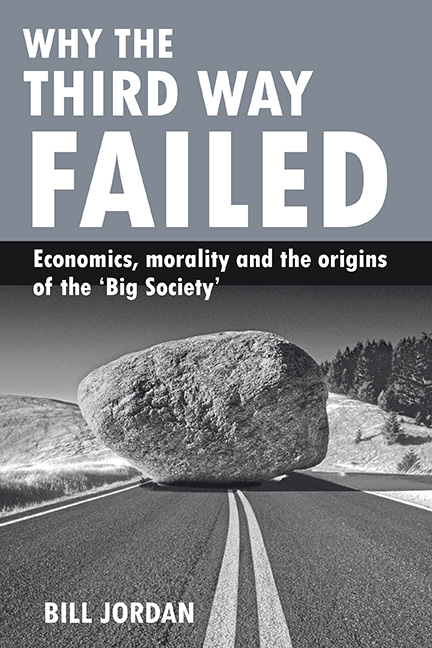one - Value, virtue and justice
Published online by Cambridge University Press: 01 September 2022
Summary
The questions raised by ‘The benefits busters’ example in the Introduction are ones of political and social justice, equity and fairness among members of a society. But they concern the expression of such moral and social principles through the operation of law and policy, within such institutions as property ownership (including the firm, profit and government contract), employment (wages and salaries, working conditions) and the tax-benefits system (government arrangements for raising revenue from and dispensing income to citizens).
By reference to the example of the Israeli nursery (pp 3-4) in the Introduction, I have already endorsed Michael Sandel's approach to justice as concerned with what members of society value, and the virtues that government seeks to promote, as well as with individual freedom of choice and overall welfare (Sandel, 2009b, p 9). Justice deals in issues about the best way for communities to live together, and what is due to members, both collectively and individually.
Sandel's approach is particularly useful in examining issues of justice in the middle ground between interpersonal relations and ones that concern governments and citizens. Through vivid, telling and memorable examples, he shows that questions about whether profiteering in the aftermath of a natural disaster is justified, whether bankers whose greed caused the economic crash deserve bonuses or whether a professional golfer with a circulatory disorder should be allowed to ride around the course in an electrically-powered buggy, cannot be satisfactorily answered by calculating the utilities at stake among protagonists, or by reference to their individual rights and entitlements. What matters in these examples is the deserts of people who share in certain common risks and advantages of their spheres of life, and who have strongly held views over what they value about these activities and relationships.
Where Sandel's approach is less immediately helpful is in analysing the rights and wrongs of larger-scale issues, concerning the overall benefits and burdens of society's membership, or the role of government, or relationships between societies. For example, it is not obvious how to apply his ideas of virtues, or how to live well together, to questions about climate change, rogue states, terrorism, mass migration or even the tax-benefits issues posed by ‘The benefits busters’ example.
- Type
- Chapter
- Information
- Why the Third Way FailedEconomics, Morality and the Origins of the 'Big Society', pp. 23 - 42Publisher: Bristol University PressPrint publication year: 2010

